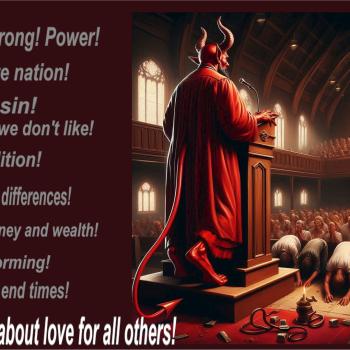What then exactly is this thing we are calling shame? How do we distinguish it in the moment it occurs? From the countless hours spent with people on their respective pilgrimages, it seems that even defining it is no easy task, which, as I will invite you to consider later, is part of shame's intention. For its elusiveness is a key element of its power. We can use various words such as humiliation, embarrassment, indignity, disgrace or more. And though these words get close to what we really mean, ultimately they are essentially symbols that represent the actual neuropsychological state we enter when we experience it.
It is not easy to wrap a simple classification or explanation around our topic. However, despite the challenge of developing such a universally accepted definition of shame, there are particular qualities about it that we immediately recognize as being common to our experience of it.
More Than a Feeling
One way to approach its essence is to understand it as an undercurrent of sensed emotion, of which we may have either a slight or robust impression that, should we put words to it, would declare some version of I am not enough; There is something wrong with me; I am bad; or I don't matter.
But we would be mistaken if we thought that the story of shame begins with those words or that they tell it in its entirety. For although we come to understand much of who we are via the medium of language as a way to make sense of reality, our lives emerge most primally in the forms of bodily sensations and movements, perceptions, and emotions. Emotion itself could be considered to be the gasoline in our human tank. If we were to take emotion out of the human experience, we would literally stop moving. Hence, although the description of our experience of shame is often couched in words, its essence is first felt. Though I may say, "I should have been better at that" or " I'm not good enough," the power of those moments lies in our emotional response to the evoking stimulus, be that a comment, a glance or a recollection of that day in third grade when your teacher pointed out in front of the rest of the class that you weren't that bright.
We use many different words to convey various bandwidths of emotional tone. We know that pleasure and sadness are different, that disappointment and anger are not felt to be the same. But it is revealing that so many of what we would term "negative" emotions (i.e., those that we find generally to be distressing in some way) are actually rooted in shame. Again, by shame I am not talking about something that necessarily requires the intensity of extreme humiliation. Rather, it is born out of a sense of "there being something wrong" with me or of "not being enough," and therefore exudes the aroma of being unable or powerless to change one's condition or circumstances.
The important feature here is not just the fact that I am not enough to change my life (though of course the fact is necessary as part of the experience), but rather the felt sense that I do not have what it takes to tolerate this moment or circumstance. There are other examples of this. Qualitatively, we would not usually associate sadness with shame. If I lose my best friend to cancer, I do not initially anticipate that shame would be anywhere close to what I would feel. But sadness, though certainly not always, is often related to a lessening. A lessening of relationship (such as death or a betrayal), function or agency (unemployment or an amputation), or the nature of one's story (discovering as an adult, for instance, that when you were a child your father had had an affair and fathered a child you have never known about, lessening the confidence you have in your place in your family). In each case, we inevitably encounter the moment when we are not enough to change our reality as we are currently imagining it. As such, this "not being enough" to tolerate this moment is the grounding for how shame operates, albeit in dimensions of mental activity that may escape my immediate awareness of it as shame.
The purpose here is not to prove that all emotion that we experience as uncomfortable is rooted in shame, but that we notice many of the emotions that represent distress within us are an extended development of this particular emotional state. Out of this state, then, arise words that we use to make sense of it, so that we can do something about it. When Alison brought her test result to her mother showing a score of 92 percent, her mother asked, "What happened to the other 8 percent?" It doesn't take much to imagine what Alison sensed and felt, nor would it be a surprise if you were to learn that in the wake of multiple interactions like this one Alison developed a knack for telling herself (among many possible options) that she simply had not worked hard enough. Furthermore, she would go on to tell herself that she needed to work harder in order to improve her scores. She would not necessarily be aware that such self-talk was primarily about coping with shame, despite this being the most fundamental thing she is doing. And so, out of the feelings of shame come the words I don't work hard enough.




